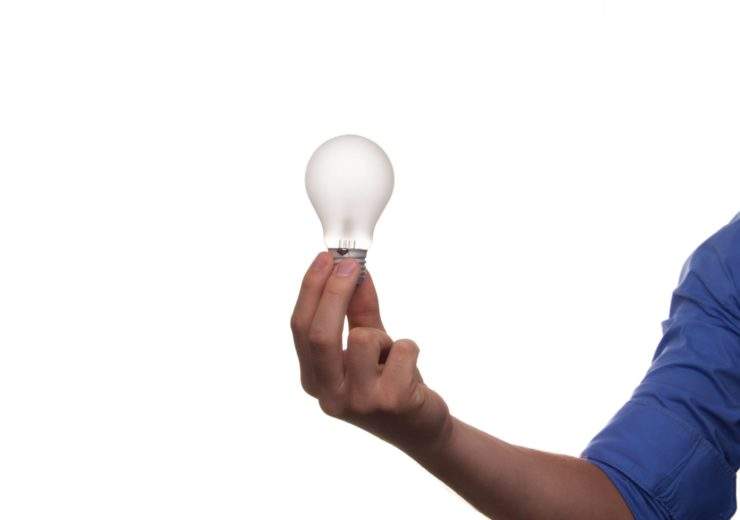CEO of Helvar Adel Hattab spoke to Compelo reporter Felix Todd about his smart lighting company's ambition to boost productivity and wellbeing through autonomously manipulating the light around us, as well as the role his past experiences at firms like Nokia plays today and why Finland is rising in the tech world

“Imagine walking into a room and having the right amount of light at all times – light that starts out bright in the morning to boost productivity and then dims in the afternoon to save energy, all automatically” – this is Adel Hattab’s vision for smart lighting.
The CEO of Finland-based intelligent lighting firm Helvar is passionate about the potential for the light around us to profoundly affect the way we live and how we work.
Lighting accounts for 19% of the world’s energy use and 6% of its greenhouse gas emissions, meaning small efficiency adjustments have the potential to make big differences.
With previous experience in senior roles at mobile carrier Nokia and industrial company Metso Automation, Mr Hattab assumed leadership of his new business in September last year.
Speaking to Compelo, he explains the secrets behind lighting as an aid to wellbeing and productivity, how his past experience has informed the business strategies he employs today and why Finland is becoming a global leader for tech.

How does smart lighting work?
Smart lighting has various applications – in the home it can be used in conjunction with a smart phone or voice-activated assistant to respond to queues from the resident to switch on and off, change colour, or dim.
In the office, it can be used in tandem with detection technology to identify when there are employees in the room and adjust the lighting accordingly, and to set certain brightness levels for particular times of the day.
Mr Hattab says his company’s work in smart lighting works off people’s circadian rhythm – the internal clock that determines when we feel alert and when we feel drowsy.
“Whether we feel awake and alert depends largely on the light around us – so if it’s bright our brain sends signals that the body should be active, and when it’s dark, the opposite happens,” he explains.
“That’s where our technology really becomes useful, because it can work together with this system to maximise our productivity at the most opportune moments, while saving energy when appropriate.
“I truly believe in the potential for lighting to have a huge impact on business – and the lighting industry is heading in such a direction that Helvar is really uniquely placed to play an important role in this.”
How has your experience affected the way you work now?
Mr Hattab’s previous roles include being the vice president of technical sales at Nokia, where he led a 450-person organisation with a focus on product customisation, customer approvals and product certification.
He has also worked as the senior vice president for EMEA of Metso Automation, which serves the mining, oil and gas, and paper industries, where he led a team of 750 dedicated to serving a region worth 400 million euros (£351m).
“This time with these big companies was a really challenging experience – but I believe this kind of experience is key if you want to make an impact,” he says.
“You have to be faced with difficult challenges so you can learn how to survive in difficult situations – I wouldn’t be the same person and business leader I am today without these experiences.
“Most of all, I have learned that you have to put the customer first – this is becoming an increasingly customer-focused world, and if you don’t focus on them, your business is going to struggle.”
How has Finland become the tech hub it is today?
Scandinavia has boosted its technology portfolio exponentially over the past decade.
A 2017 report by UK investment bank GP Bullhound found that of the five European businesses most likely to reach a $50bn (£38bn) valuation, four are from the Nordics – music streaming service Spotify, e-invoicing company Klarna, and gaming companies Supercell and Unity.
Finland is right at the heart of this change, and Mr Hattab attributes this to the culture and infrastructure that’s developed progressively in the country.
“We have great educational systems here in Finland – I myself have an MBA from the Helsinki School of Economics,” he explains.
“People are encouraged to have ideas, and they do, that’s really why it’s no surprise there are so many start-ups here – it’s a great place to launch a business, particularly a tech business.”

She told Compelo: “We encourage people to have ideas which definitely helps – people aren’t afraid to take risks and think big, so we get more and more ideas coming all the time.
“I think primary education is very important. Kids are taught in school that it’s important to contribute to the world in a meaningful and lasting way.
“Then they are given the confidence to do that and, more importantly, people in Finland genuinely want to do that.
“It’s just as important when they get to university. Students must be encouraged to keep their ideas going once they get to the last stages of education.
“At our universities, students are taught how to be entrepreneurs and are encouraged to start businesses – it’s thought of as a great thing to do rather than a crazy thing.”


